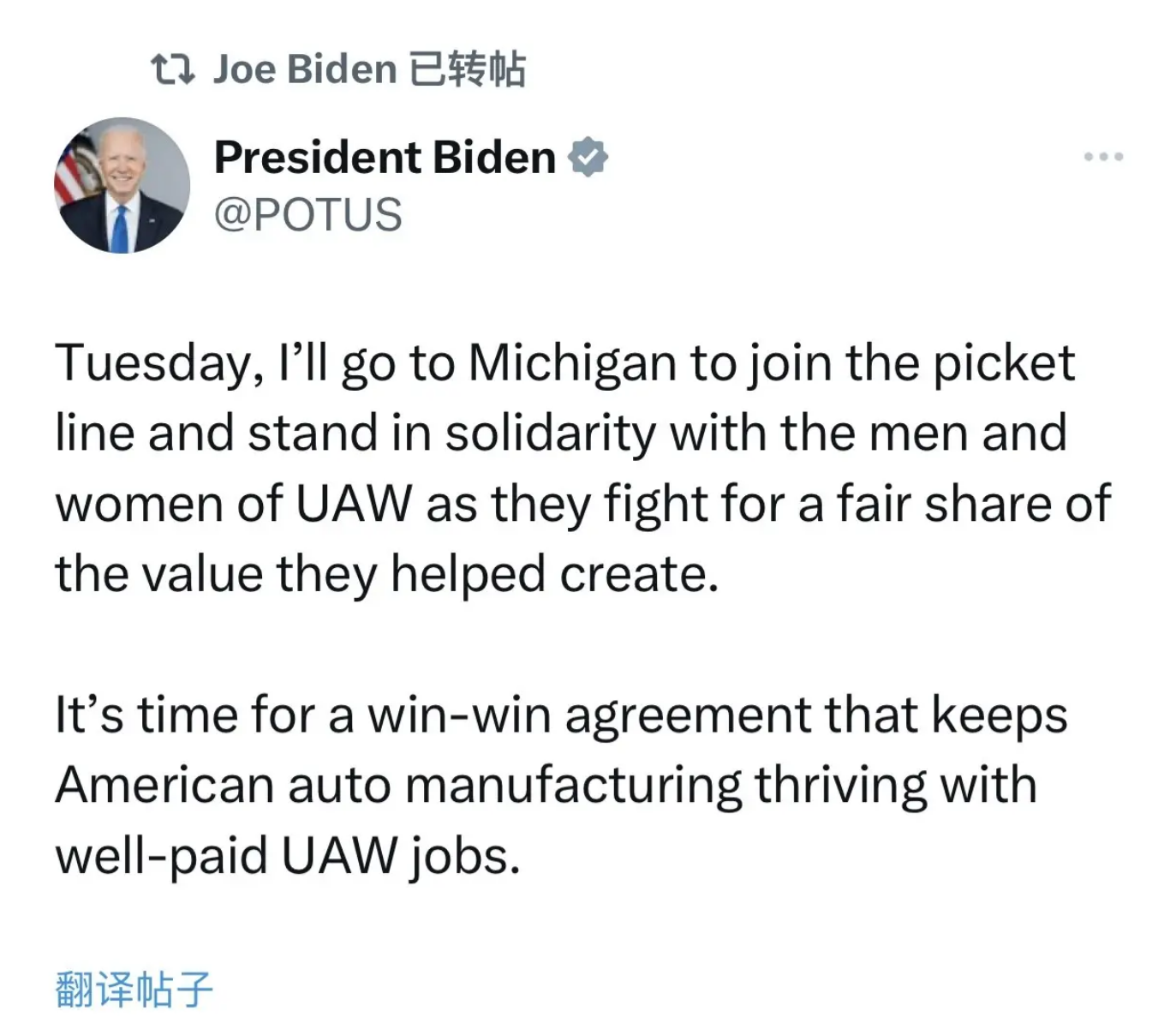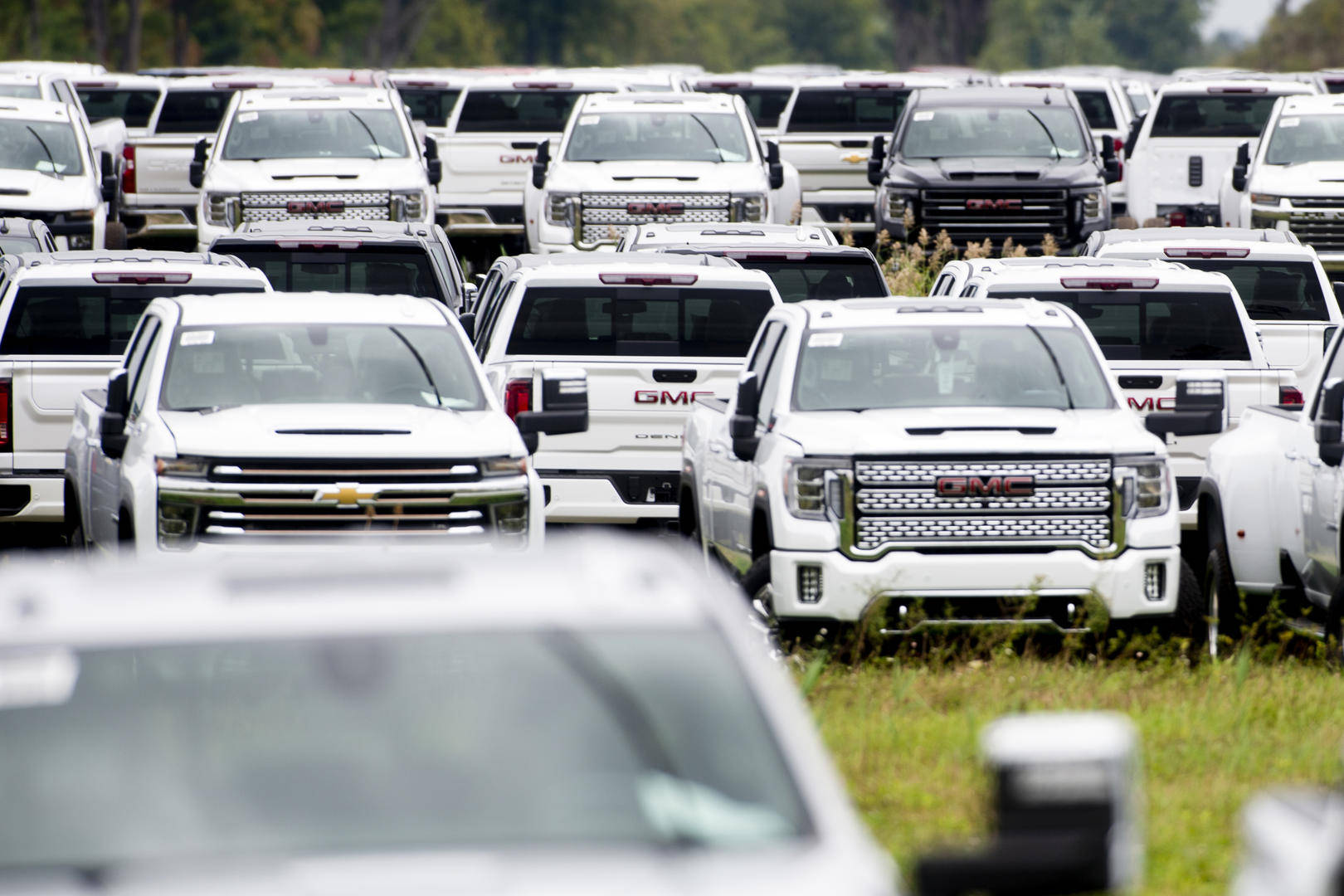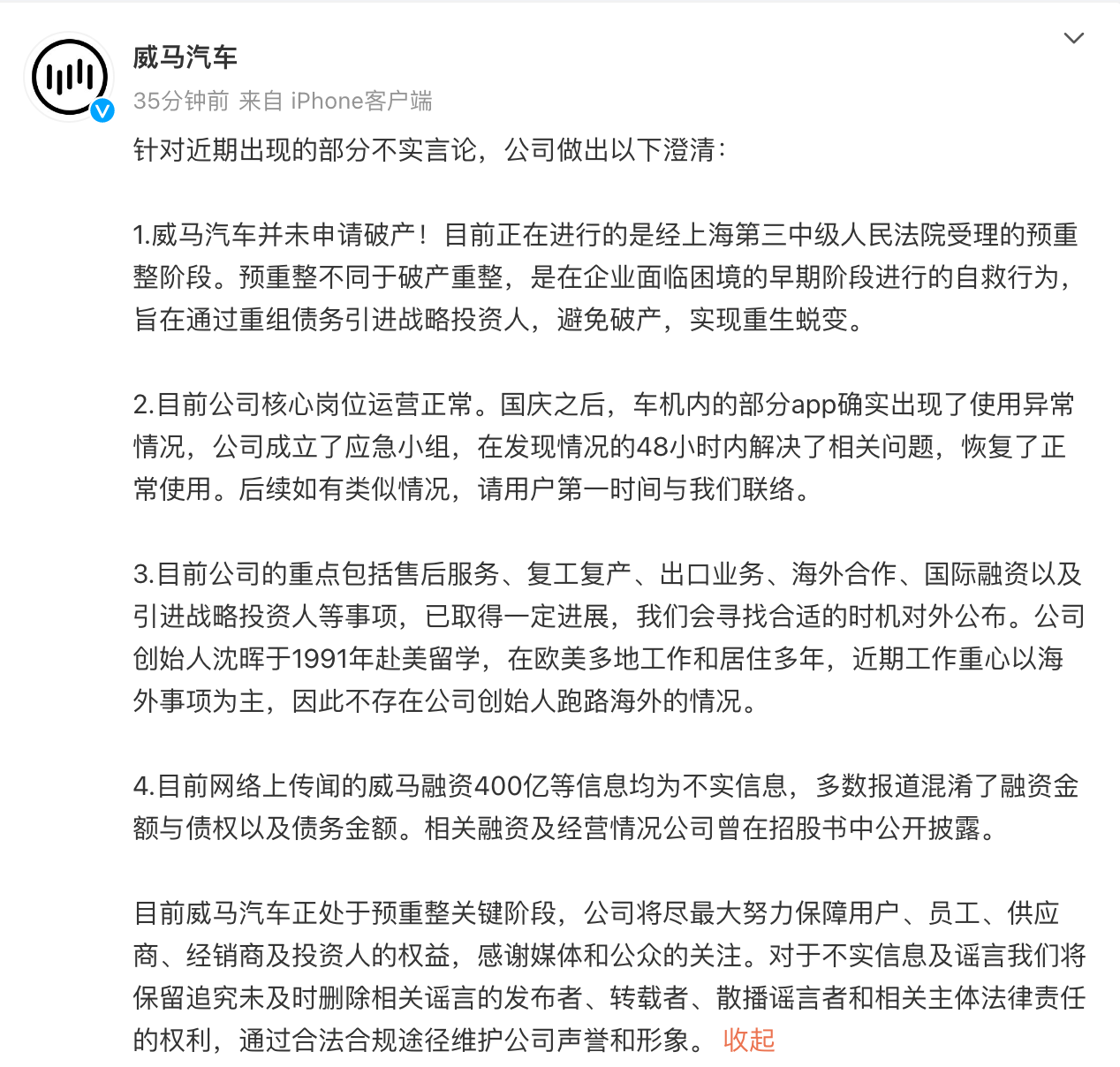In addition to Weibo, there is also WeChat
Please pay attention

WeChat public account
AutoBeta


2024-07-27 Update From: AutoBeta autobeta NAV: AutoBeta > News >
Share
AutoBeta(AutoBeta.net)09/23 Report--
President Joe Biden posted on social media that he would travel to Michigan next Tuesday, local time, in solidarity with the United Auto Workers (UAW) strike against Detroit automakers and "get a fair share of the value they help create".

The general strike in the US auto industry shows no sign of abating. According to CCTV News, Shawn Fain, president of the United Auto Workers Union (UAW), said on Sept. 22 that the strike of the UAW workers would be extended to the United States, with a new group of strikers going on strike in 38 locations in 20 states across the country.

Finn said in his speech that negotiations with GM and Stellantis, the two automakers, remained stalled because of some progress in negotiations between the unions and Ford. As a result, the strike will extend to all parts distribution centers of GM and Stellantis, involving 38 distribution centers of the two automakers in 20 states. Finn, chairman of UAW, said: "the management of the Big three must get down to business, they must work with us, and the negotiations need to see substantial progress, or we will call on more workers to stand up and strike."

A week ago, on Sept. 15, the United Auto Workers (UAW) officially launched a strike against the three major American automakers-General Motors, Ford and Stellantis. This is the first time in more than 80 years since the founding of the UAW that auto workers have gone on strike against the Detroit "Big three" at the same time, causing a social shock in the United States.
The National Auto Workers Union (UAW) is one of the largest workers' associations in the United States, with 146000 members in GM, Ford and Stellantis, accounting for about 56 per cent of all workers in the US auto industry. Traditionally, UAW employees re-signed contracts with the Detroit Big three every four years, but within the deadline, the two sides did not agree on a new labor agreement and eventually launched a large-scale strike.

Why can't we reach an agreement? The union's contract with Detroit's three auto giants expires on Sept. 14, requiring the big three to raise wages, pensions, health care and unemployment benefits to cope with the cost of living crisis caused by high inflation in the United States. The union has not yet. The salaries of the leaders of the Detroit Big three have risen sharply over the past four years, and workers' wages need to be kept in sync. Workers need higher wages to cope with the soaring cost of living. After several rounds of negotiations, the two sides have made progress but have never reached an agreement.
Why don't the Big three agree? It is calculated that if the demand of the trade union is met, the labor costs of the car companies will increase by $45 billion to $80 billion, with an average labor cost of more than $80 billion per hour, an increase of 134% from the current $64. This means that the annual high labor costs will greatly weaken the market competitiveness of Detroit's "Big three", and even become its "unbearable" pressure.

Now, a week after the strike, the two sides have not made any phased progress. On Sept. 20, GM said it had to close an assembly plant in Kansas and lay off 2000 employees because of a shortage of parts caused by a strike. It is understood that the assembly plant, located in the town of Fairfax, was shut down because of a "shortage of key stamping parts", which were supposed to be supplied by GM's plant in Wintsville, Missouri, but workers at the plant went on strike last week. GM said it would not be able to receive supplementary unemployment benefits because the workers went on strike. UAW said it would give the laid-off workers a temporary hardship allowance of $500 a week.
Senior US financial commentator Greg pointed out that under the pattern of international competition, the US automobile industry is no longer what it used to be, and Asian manufacturers such as China, Japan, and South Korea have made considerable progress in cost control and quality management. left their American counterparts far behind. As American consumers can buy cheap imported cars, the pressure of rising wages can hardly be passed on to consumers, so it is difficult for car companies to meet the wage demands of their workers.
According to the analysis, so far, the week-long strike has caused about $1.6 billion in economic losses, including a loss of $511 million for the company, $107 million for direct wages and $470 million for consumers and dealers.
Welcome to subscribe to the WeChat public account "Automotive Industry Focus" to get the first-hand insider information on the automotive industry and talk about things in the automotive circle. Welcome to break the news! WeChat ID autoWechat
Views: 0
*The comments in the above article only represent the author's personal views and do not represent the views and positions of this website. If you have more insights, please feel free to contribute and share.











© 2024 AutoBeta.Net Tiger Media Company. All rights reserved.